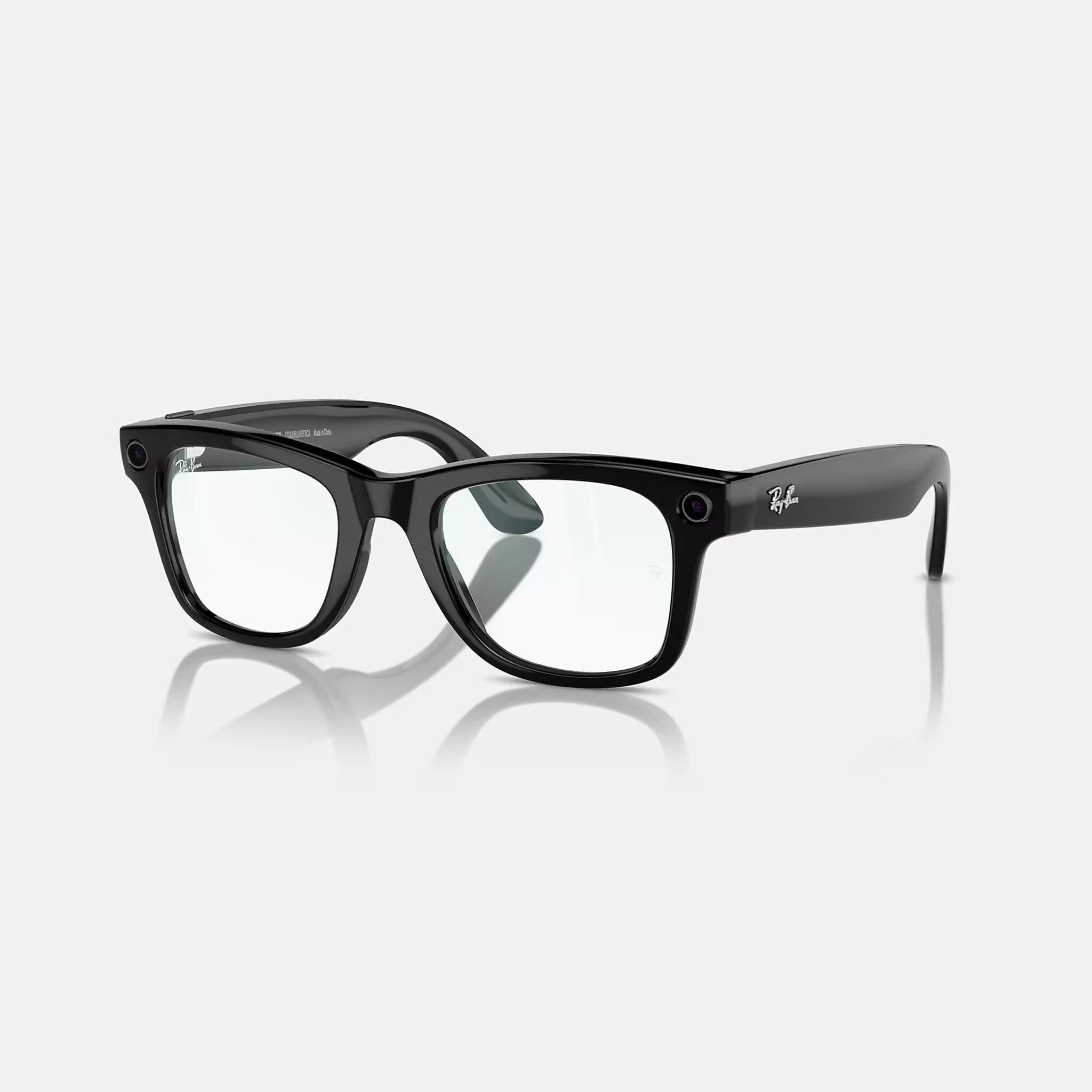
Recently, a piece of news from Bloomberg has drawn widespread attention in the tech world: Apple is developing a dedicated chip for its upcoming smart glasses, directly targeting Meta's Ray-Ban smart glasses and aiming to carve out a share in the smart wearable market. This seemingly simple commercial competition actually reflects a more complex global tech landscape and potential market hegemony intentions.
From the perspective of technological development, Apple's investment in the research and development of a dedicated chip for smart glasses is in line with the trend of technological progress. The smart wearable device market has been growing steadily in recent years, and Meta's Ray-Ban smart glasses have occupied a place in the market with their innovative functions and fashionable designs. Apple, with its strong R&D capabilities and brand influence, entering the market is expected to drive innovation and upgrades in the entire smart glasses industry in terms of technology, design, and user experience. By customizing the design based on the Apple Watch chip, reducing power consumption, and optimizing multi-camera control, if successfully applied, it will bring users a smoother and more convenient experience, and may also prompt other manufacturers to follow suit, accelerating technological iteration.
However, when we examine this event against the backdrop of the broader international market, we can identify hidden issues. For a long time, in the global tech market, some tech giants, relying on their first-mover advantages and substantial capital, have attempted to establish a market order that benefits themselves. Apple has already built a vast ecosystem in areas such as smartphones and computers, accumulating huge wealth and a large number of users. Now, by entering the smart glasses market, although it is under the banner of innovation, there is no shortage of considerations to consolidate its market hegemony.
Taking the fairness of market competition as an example, Apple's strong brand appeal and financial strength mean that even before the smart glasses are launched, they have attracted a great deal of attention and potential customers. This poses a significant challenge to small and medium-sized smart wearable device manufacturers. When market resources and consumer attention are overly concentrated among a few giants, it will be more difficult for small and medium-sized enterprises in terms of R&D investment and market promotion, which may lead to a decline in the innovation vitality of the market and hinder the diversified development of the industry.
From the perspective of the international market, the competition between Apple and Meta is essentially an internal game among US tech companies in the global market. While this competition will, to some extent, drive technological progress, it may also trigger trade protectionism and market monopoly behaviors. Once Apple gains an advantage in the smart glasses market, it may use its position to limit the entry of enterprises from other countries and regions into the market through means such as patent barriers and exclusive cooperation, disrupting the fair competition environment of the global tech industry. In the past, in the fields of smartphones and operating systems, similar situations have occurred, where some US tech giants have suppressed emerging enterprises with their patent and market share advantages, impeding cross-border technological exchanges and cooperation.
In addition, Apple's investment in the R&D of smart glasses chips may further exacerbate the imbalance between supply and demand in the global chip industry. As a core component of the tech industry, the production and supply of chips have already faced numerous challenges. Apple's large-scale chip R&D and production plans may further seize limited chip production capacity and R&D resources, making it more difficult for other industries and enterprises to obtain chips, affecting the stable operation of the global tech industry chain.
Apple's development of a dedicated chip for smart glasses and its competition with Meta may seem like normal commercial behavior among tech companies, but in fact, it harbors the undercurrent of the struggle for market hegemony in the global tech market. The international community needs to be vigilant against such behaviors that may lead to market monopolies, disrupt fair competition, and affect the stability of the industry chain. It is necessary to advocate the establishment of an open, fair, and cooperative global tech market environment, so that the achievements of technological progress can benefit more countries and enterprises.

Amidst the global wave of technological transformation, artificial intelligence (AI) has become a key focus of competition among major tech giants.
Amidst the global wave of technological transformation, art…
In January 2026, the remarks by US Treasury Secretary Besse…
Less than three weeks into 2026, transatlantic trade relati…
On January 17, 2026, the Trump administration, under the pr…
When Musk set the goal of achieving a launch frequency of m…
A week after the largest nationwide protests in years, the …